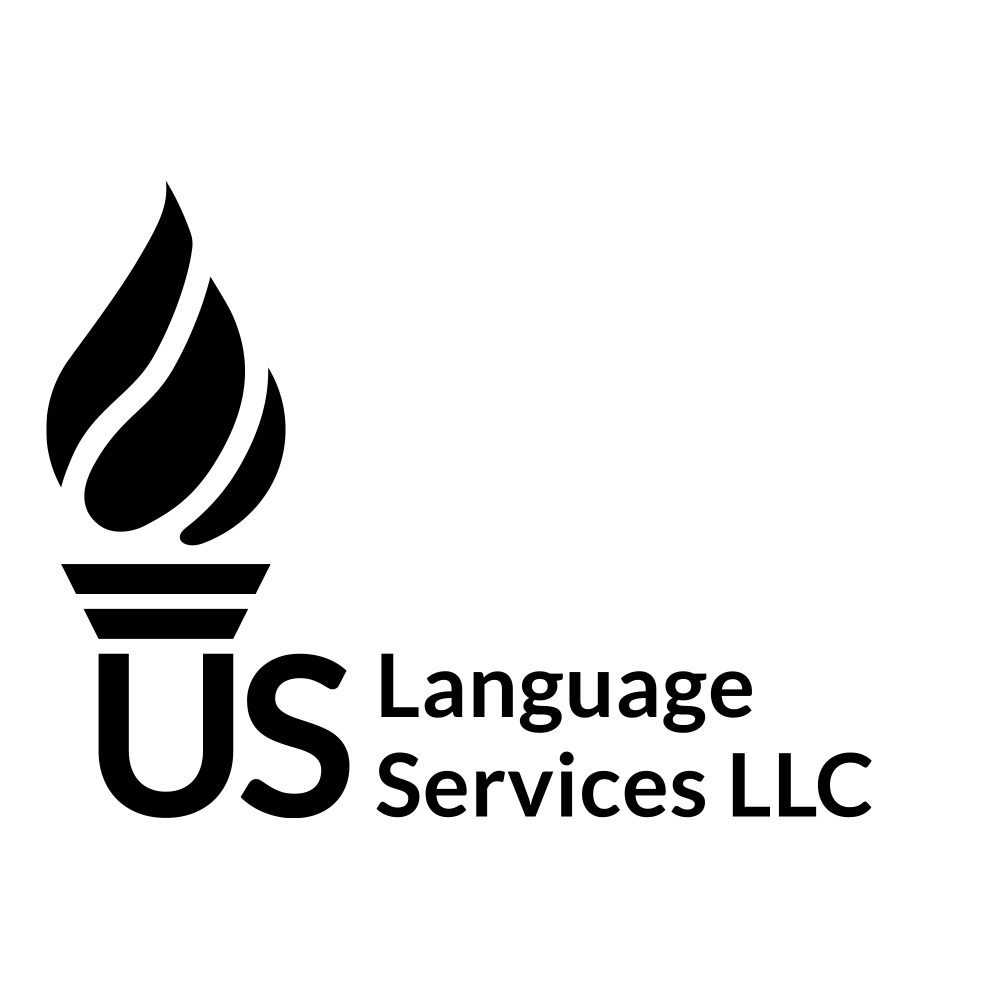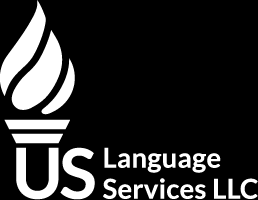How to Obtain Dual Citizenship in the United States?
Dual citizenship, also known as dual nationality, refers to the status of being a citizen of two distinct countries at the same time. In the United States, this means holding citizenship in both the U.S. and another nation. It’s important to note that not all countries permit dual citizenship, and the rules governing dual citizenship are different among the countries that do allow it.
In this guide, we will answering the following questions:
- Is dual citizenship allowed in the United States?
- What documents do I need to apply for dual citizenship?
- Should my documents be translated into English?
- What are the benefits of having dual citizenship?
- What are the obligations of dual citizens?
- How can I become a dual citizen of the United States?
- Which countries allow dual citizenship?
- Other Frequently Asked Questions
Is dual citizenship allowed in the United States?
Yes, the United States generally permits dual citizenship as a default practice. Naturalized U.S. citizens are not required to give up their citizenship from their country of origin. Although the Oath of Allegiance to the United States includes a commitment to renounce “allegiance and fidelity” to other nations, U.S. immigration law does not specifically deal with the matter of dual citizenship.
The U.S. government’s stance on dual citizenship is best summarized by a U.S. Supreme Court decision made in 1952. In that particular case it was decided that “a person may have and exercise rights of nationality in two countries and be subject to the responsibilities of both.” If you would like further clarification, the U.S. Department of State offers a more detailed explanation of the U.S. stance on dual citizenship.
While the U.S. may allow dual citizenship, it’s important to check if your country of origin also allows it. Some countries, such as the Netherlands and Ukraine will not acknowledge the status of a naturalized U.S. citizen within their borders. In fact, citizens of those countries which do not permit dual citizenship could automatically lose their original citizenship after they naturalize in the United States. It’s important to research your country of origin’s stance on dual citizenship before pursuing citizenship in the United States.
What documents do I need to apply for dual citizenship
To become a citizen of the United States you will need to go through the naturalization process. This requires you to file a citizenship application known as the N-400, Application for Naturalization. You need to include multiple documents with that application which are related to your identity.
There is not a specific application to file for dual citizenship in the U.S. As noted above, dual citizenship is allowed in the U.S. as a default practice. As a result, the only documents you will need are the documents required for naturalization in the United States.
Should my documents be translated into English?
Yes, according to USCIS, if you submit a document with information in a foreign language, you must also submit an English translation.To guarantee that your naturalization application is processed quickly, it helps to have a certified translation.
Some documents that commonly need to be translated for immigration purposes include:
- Criminal records
- Birth certificates
- Military service records
- Marriage certificates
- Divorce decrees
- Academic transcripts
You can order a certified translation of these documents from our online store:
Order Your Certified Translation
What are the benefits of having dual citizenship?
Being a dual citizen of the United States and another country can offer many benefits that might help you achieve your goals. But remember, there are also obligations that come with becoming an American citizen through naturalization.
Will dual citizenship allow me to work anywhere in the U.S.?
You can look for jobs in any state within the United States without needing a special work permit. However, as a dual citizen, you might not be eligible for certain government jobs. These jobs usually need high-level security clearances and the ability to keep secret information. This could be a challenge if you also have loyalty to a country that doesn’t align with the interests of the United States.
Will dual citizenship allow me to travel more easily?
You will have the freedom to travel outside of the U.S. as much as you want without the risk of losing your U.S. citizenship.. Additionally, if you intend to remain outside the United States for over a year, you won’t have to obtain a re-entry permit, which is necessary for lawful permanent residents (green card holders) when they return.
Will dual citizenship allow my family to get green cards?
Yes, the immediate relative of a U.S. citizen can become a lawful permanent resident (Green Card holder) based on their family relationship. This is true of relationships with your siblings, parents, and children that are 18 years or older.
Will dual citizenship allow me to vote?
Yes, after you’ve obtained citizenship in the U.S., you’ll be permitted to vote in any election, including federal elections.
Will dual citizenship allow me to attend school in the United States?
You can attend a school in the United States without needing a student visa. You also may be able to avoid higher tuition fees that are sometimes required of international students.
Can I access public benefits if I have dual citizenship?
Public benefits are available to U.S. citizens as long as they are eligible. A few examples of public benefits are Medicare, Food Stamps, and tuition assistance. So, you may have access to programs that are not available to non-U.S. citizens.
What are the obligations of dual citizens?
Becoming a citizen of the United States is a privilege that many people seek throughout the world. However, U.S. citizenship also comes with certain responsibilities.
Do dual citizens have to pay U.S. taxes?
As a U.S. citizen, you are required to file and, if applicable, pay U.S. income and other taxes throughout your lifetime. This is true even for income that you earn outside of the United States, regardless of your place of residence. This means that you may be responsible for paying taxes to both the United States and your other country of citizenship on the same income unless that country has an agreement with the United States to prevent ‘double taxation’ for dual citizens.
Will I be required to tell the U.S. government about my previous interactions with law enforcement?
When reviewing citizenship applications, USCIS officers carefully examine the backgrounds of applicants. Specific violations, like immigration fraud, drug issues, or domestic violence, could potentially lead to deportation. If you have concerns about your past encounters with law enforcement, it’s essential to consult with legal experts before applying for naturalization.
As a dual citizen, will I have to join the military?
Almost every male citizen or green card holder in the U.S. between ages 18 and 26, is required to register for Selective Service. If there is a wartime situation, a U.S. citizen may be called upon by the government to serve in the U.S. military, either in combat or in other roles. Registering for Selective Service is not the same thing as joining the military, it means making yourself available for military service in emergency situations.
As a dual citizen, will I have to serve jury duty?
Jury duty is a requirement for every U.S. citizen, but that doesn’t mean you’ll automatically serve. To become a juror, you must be chosen by the judge and attorneys during the selection process, which takes place after you’ve been summoned to appear in court.
How can I become a dual citizen of the United States?
There is no specific application or form that allows a person to apply for dual citizenship. In reality, you just need to apply for citizenship in the U.S. while retaining citizenship in your country of origin. If your home country does not prohibit dual citizenship, and you successfully obtain citizenship in the U.S., you will then have dual citizenship.
Before seeking U.S. citizenship as a second citizenship, it’s essential to reach out to your home country’s embassy or consulate to determine if dual citizenship is permitted. Otherwise, you might unintentionally lose your citizenship in your home country.
After confirming that your home country acknowledges your U.S. citizenship status, you should make sure you meet all the naturalization requirements (unless you qualify for U.S. citizenship through a parent). You can then start the process of becoming a citizen by submitting Form N-400, Application for Naturalization, to the U.S. Citizenship and Immigration Services (USCIS).
When should I apply for dual citizenship?
You can submit your application at any point after meeting the naturalization eligibility criteria. In most cases you will be eligible from 3 to 5 years after obtaining your green card.
How long will it take to obtain U.S. citizenship?
Filing your citizenship application with USCIS is just the beginning of the process. The entire naturalization process may take between 6 and 12 months, or more. The specific duration can vary depending on factors such as the USCIS field office where you submit your application and how quickly you begin the naturalization process. Our detailed guide outlines how long each step in the citizenship process typically takes.
Which countries allow dual citizenship?
Many of the countries in the world allow dual citizenship, but the rules of each country differ. In the following table, we will look at the 10 countries from which the highest number of people have become green card holders in the United States. These countries make up the highest number of green card holders who are eligible for citizenship in the U.S., so we will examine each country’s stance regarding dual citizenship.
| Country of Origin | Acknowledge Dual Citizenship With the United States? | Rules Regarding Dual Citizenship |
| Mexico | Yes | Mexican citizens who go through the naturalization process in the United States have the option to retain their Mexican nationality. However, they might not be eligible to vote or seek public office in Mexico. Mexican citizens who acquired U.S. citizenship prior to 1998 lost their Mexican citizenship automatically and were required to apply within a five-year period to regain it. (Check out the Mexican government’s rules regarding dual citizenship.) |
| China | No | Chinese citizens who become naturalized in the United States will lose their Chinese citizenship automatically. (Check out the Chinese government’s rules regarding dual citizenship.) |
| Philippines | Yes | When Filipino citizens undergo naturalization in the United States, they will automatically forfeit their Filipino citizenship. However, natural-born Filipinos can apply to have their Filipino citizenship reinstated. (Check out the Philippine government’s rules regarding dual citizenship.) |
| Cuba | Unclear | There is no definitive information available from official or unofficial sources, as to whether Cuban citizens who naturalize as citizens of the U.S. would automatically forfeit their Cuban citizenship. Nevertheless, the U.S. Embassy in Cuba does acknowledge that some individuals hold both U.S. and Cuban citizenship. Specifically, U.S. citizens born in Cuba are regarded as Cuban citizens by the Cuban government. (Check out the information provided by the U.S. government regarding dual citizenship with Cuba.) |
| Dominican Republic | Yes | Dominican citizens who go through the naturalization process in the United States are allowed to retain their Dominican citizenship. However, individuals holding dual citizenship are ineligible to run for the positions of Dominican president or vice president, and they won’t be acknowledged as Dominican diplomats or consuls by the U.S. government. (Check out the specific rules regarding dual citizenship with the Dominican Republic.) |
| India | Not Completely | Indian citizens who acquire U.S. citizenship through naturalization will automatically relinquish their Indian citizenship. However, they have the option to register as “Overseas Citizens of India” (OCI). OCIs are granted a multi-entry permanent visa, are exempt from foreign national registration requirements, and enjoy all the privileges of non-resident Indians. Nevertheless, they do not possess political rights in India. (Check out the Indian government’s rules regarding dual citizenship.) |
| Canada | Yes | Canadian citizens who naturalize as citizens of the United States are permitted to keep their Canadian citizenship. (Check out the Canadian government’s rules regarding dual citizenship.) |
| Vietnam | Yes | When Vietnamese citizens go through the naturalization process in the United States, they will automatically forfeit their Vietnamese citizenship. However, they have the option to apply to have it reinstated. (Check out the Vietnamese government’s rules regarding dual citizenship.) |
| United Kingdom | Yes | Citizens of the United Kingdom (U.K.) who naturalize as citizens of the United States are permitted to keep their citizenship in the U.K. (Check out the United Kingdom’s rules regarding dual citizenship.) |
| El Salvador | Yes | Citizens of El Salvador who naturalize as citizens in the United States are permitted to keep their citizenship in El Salvador, if they were born in El Salvador. (Check out El Salvador’s rules regarding dual citizenship.) |
Important: The list above has been compiled based on research from both official and unofficial sources and is provided for informational purposes only. Dual citizenship regulations are often intricate and subject to change. Consequently, U.S. Language Services LLC cannot guarantee the accuracy or current status of the information presented. For the most up-to-date dual citizenship policies, it is strongly recommended that you consult with your country of origin’s embassy or consulate prior to applying for naturalization in the United States.
Other Frequently Asked Questions
Who is allowed to apply for dual citizenship in the United States?
In the United States, individuals who meet the requirements for naturalization may qualify for U.S. citizenship. Nevertheless, it’s advisable to get in touch with the embassy or consulate of your other country of citizenship to understand its specific requirements.
Is it possible to vote in both countries if I have dual citizenship?
In the United States, you’re permitted to vote as long as you hold citizenship and meet any additional conditions, such as residency and age. However, you should research your country of origin’s specific regulations regarding the right to vote there.
If I have dual citizenship with the U.S. and another country, which passport should I use for travel?
As a U.S. citizen with multiple passports, you must use your U.S. passport for entering and departing from the United States. When traveling to other countries, you have the flexibility to choose which passport to use.
Is it better to have dual citizenship or to be a green card holder in the U.S.?
U.S. citizenship grants you the full spectrum of rights and responsibilities outlined above. As a green card holder, you’ll still have the ability to work and live in the U.S., but you may encounter distinct responsibilities. For instance, if you plan to travel outside the U.S. for over a year, you may need to apply for a re-entry permit before your departure.
Can someone have triple citizenship?
Yes, it is possible for a person to hold citizenship in 3 countries. Just as with dual citizenship, not every country permits citizenship in more than one country. The best thing to do, is research your country of origin’s stance on multiple citizenships.
Which countries permit triple citizenship?
In most cases, if a country permits dual citizenship, it’s likely to allow triple citizenship as well. It’s a good idea to confirm this information by visiting the embassy or consulate websites of the countries in question.
Is triple citizenship allowed in the United States?
Yes, the United States permits triple citizenship and does not mandate that naturalized U.S. citizens renounce their citizenship in their country of origin or other countries.”
U.S. Language Services is not a law firm; its content should not be taken as legal advice. For specific legal concerns, please consult a licensed attorney. Similarly, financial information on our site is for informational purposes only, not financial advice. Consult a certified financial advisor or tax professional for advice tailored to your situation.
By accessing U.S. Language Services, you acknowledge that it does not provide legal or financial advice. You agree not to rely on its content as such. U.S. Language Services and its contributors bear no liability for any inaccuracies, losses, or damages resulting from the use of information on our site.
Guaranteed Acceptance
All our certified to English translations are accepted by the USCIS. Our translations follow the guidelines established by the USCIS and are also accepted by educational institutions.
Most Requested Documents
FAQs
You can order most translations 24 hours a day, 7 days a week through our online store. For large projects (more than 20,000 words or 50 pages), please request a quote.




